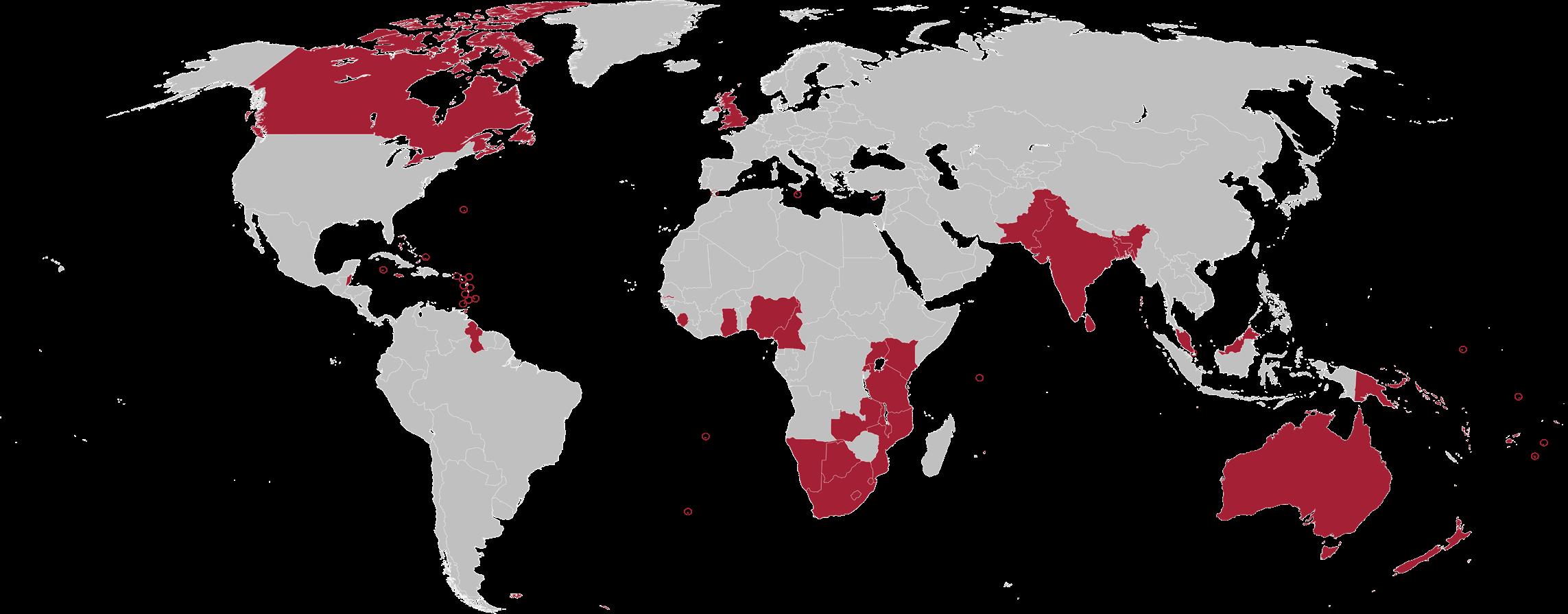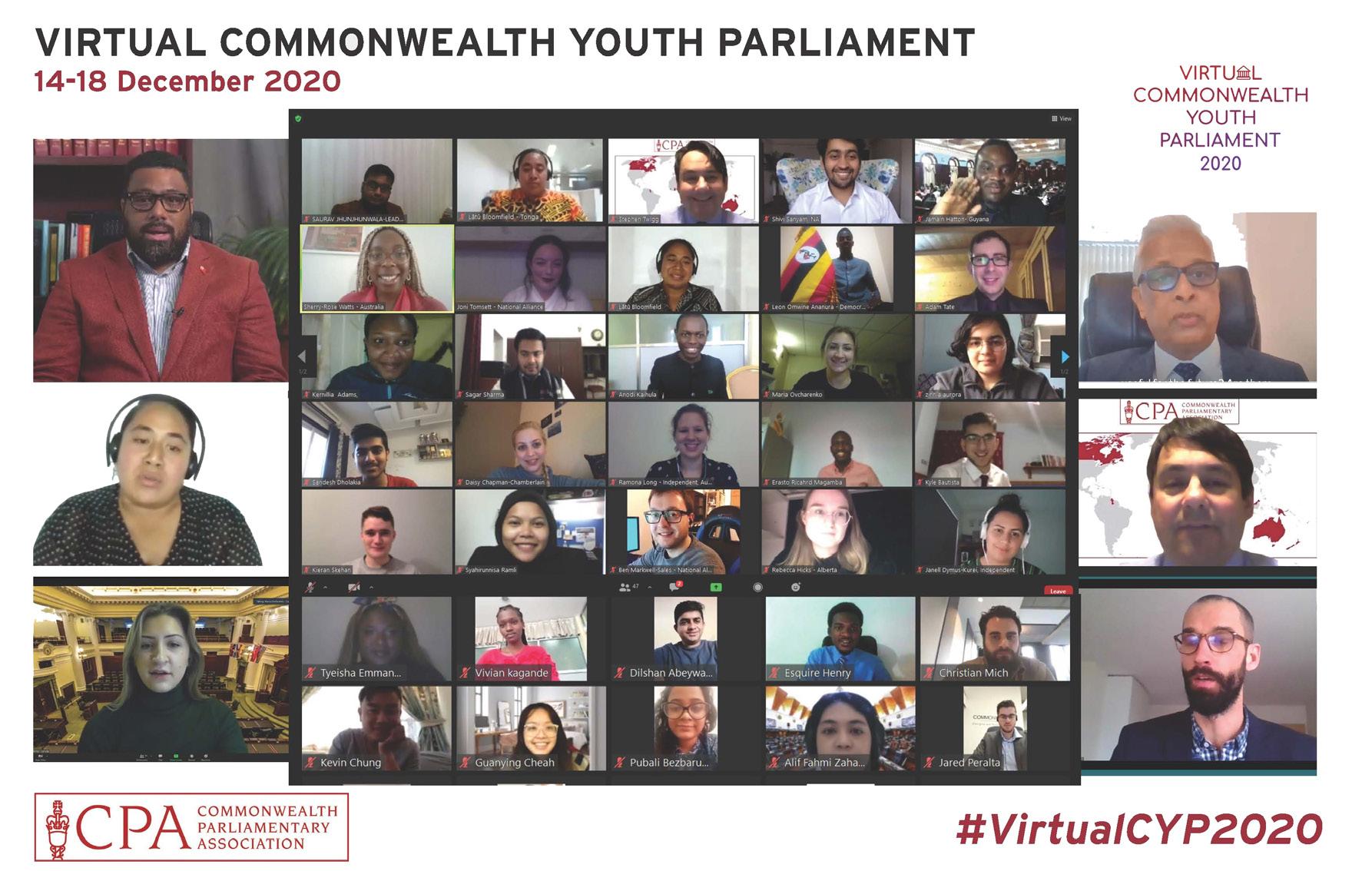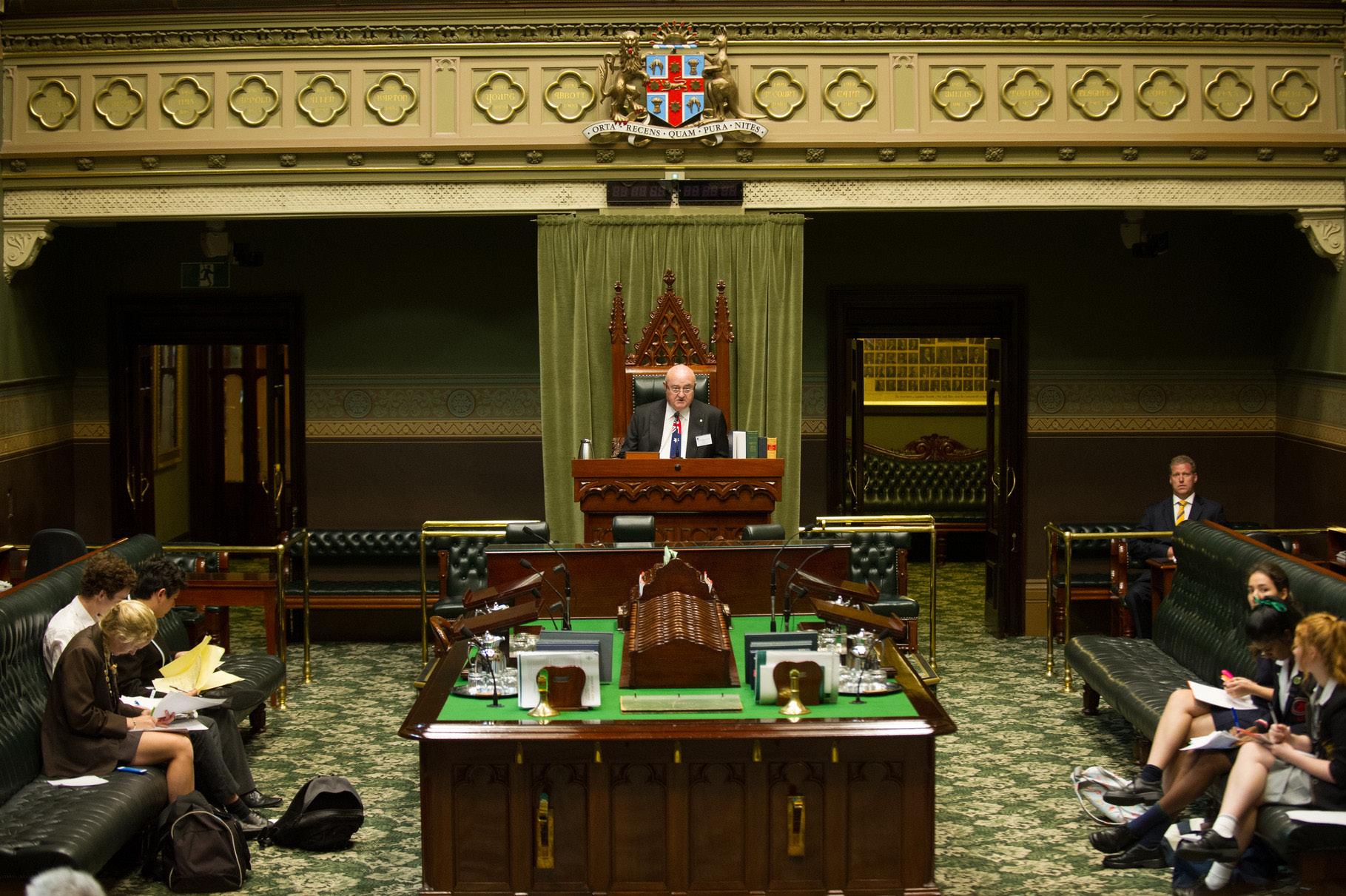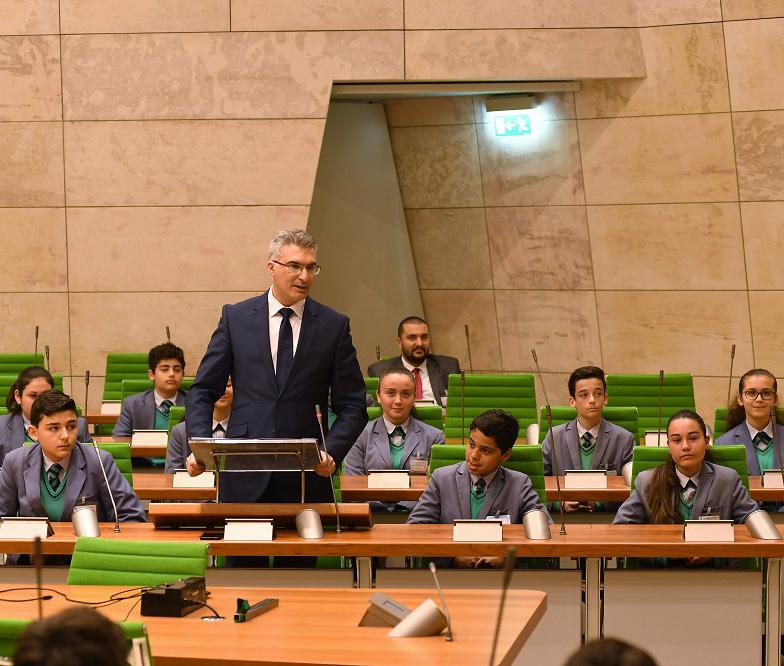
9 minute read
HOSTING YOUNG PEOPLE IN YOUR PARLIAMENT
02 Hosting Young People in Your Parliament
2.1 Things to consider when planning your event
Identify the purpose of your event.
Consider the purpose closely when choosing to host young people in your parliament. For example, if you are looking to educate them on Commonwealth Day, make use of parliamentary services like your internal library. If the purpose is to spread awareness of this year’s theme, will you showcase the activities your parliament has undertaken in the form of an exhibition?
Consider the topic and theme of Commonwealth Day.
The topic and theme are particularly important when identifying key speakers to invite to share their expertise.
Consider timing your event appropriately.
Check for any parliamentary scheduling conflicts that may restrict attendance/ cooperation/ engagement of parliamentary officials and parliamentarians.
Consider promotion.
Consider how you will promote the event for maximum turnout; How will attendees sign up? Parliamentary boards? Word of mouth? Flyers? Promotional visits to schools/ universities?
Consider your role in facilitating the event.
Create and distribute a briefing note for staff and speakers.
Be specific in identifying your measurable goals.
Dig deep into your interpretation of the theme and what message you are hoping to convey. How many Members/young people/external experts are/do you seek to host? What are you hoping attendees will take from the event and how will you measure impact?
Don’t forget your Monitoring and Evaluation!
M&E is particularly important when organising any public outreach programme, whatever your purpose may be. It is important to be able to measure, in a quantifiable way, whether your purpose/ tangible outcome was met. It is also a good way to determine what Commonwealth Day outreach programme is most effective in your societies based on feedback from young people. Parliaments do not often get the opportunity to engage with young people within parliament itself, so seize the opportunity to ask them what they want!
If hosting young people in your parliament is not feasible, hosting a webinar for young people is a great alternative! A webinar is an opportunity for young people to meet with parliamentarians and parliamentary staff who they may not otherwise get the opportunity to meet and engage in fruitful discussions with. The considerations highlighted above can also be used to plan your virtual event.
2.2 Organising a Youth Parliament
1. Outine your objectives: 4. Know your audience:
To draft mock legislation in the form of a Youth Parliament? Will your Youth Parliament emulate a debate in the chambers in order to hold legislatures to account on policies relevant to the Commonwealth Day theme?
2. Develop your project:
Know your audience. This will ensure that your Youth Parliament is championed by young people and for young people. For example, in order to encourage the flow of new and fresh ideas be mindful of how much input you, as a parliamentarian or parliamentary staff, have in the discussions so as to not impose your own views.
Once you have established the finer details of your project, consider how you will develop your project; i.e. the structure of the parliament you are emulating, the makeup of your political parties, identifying key players who will contribute as human resources etc.
3. Plan your implementation:
Consider gathering support from parliamentary staff who have experience supporting/planning parliamentary activities and can transfer these skills into ensuring that your Youth Parliament is well-planned and a true reflection of your parliament’s practices and procedures. To accommodate remote participation, you can also consider hosting a virtual Youth Parliament. An online Youth Parliament may be more cost-effective for you and the attendees so you may find that you are able to accommodate more young people, and in doing so, you will also be supporting a more sustainable future. You will save time on administrative tasks, like making travel arrangements, so more energy can be put into polishing the above steps!

2.3 Lead a Guided Tour of your Parliament
Liaise with your parliament’s education service who may be able to assist in delivering an educational, informative and historical tour of your parliament. If this is not an option - consider becoming the tour guide using the following steps:
1. Do your research!
In order to give a good tour, you will need to learn all the relevant facts. Revise the historical link between your parliament and the Commonwealth prominent parliamentary activities pertaining to the Commonwealth and where they all took place! Young people are inquisitive so consider all the possible questions you may be asked beforehand to ensure that you are well-equipped to handle this tough crowd. Note: It may be wise to speak to the relevant parliamentary services responsible for giving tours or go on a guided tour yourself so that you can tap into their knowledge when organising your own.
2. Know your audience!
Be mindful of your vocabulary and the complexity of this tour especially if you have young people who have varied pre-existing knowledge on parliament.
3. Rehearse, rehearse, rehearse!
A tour should feel conversational and natural whilst being as informative as possible, which is why it is crucial that you learn the facts so that your delivery can be effortless. Don’t be afraid to write tour cards as gentle reminders for yourself.
4. When on the tour, introduce yourself!
Make your tour personable and fun by getting to know your group. It is important to make a special effort in bridging the gap between parliamentarians/parliamentary staff and the public to alleviate any uncertainties and get personable. 5. Present an overview!

Present an overview of the route and what they can expect -hand out maps for guests to follow along. This is also something they can take away with them to ensure the day is memorable. Consider drawing attention to places on the map that accommodate people that require disability access.
6. Delivery is key!
Project your voice. It is also important that young people feel that their opinions are valued so be open to interjections and questions.
Parliament can be daunting to the public, particularly young people who may have little experience entering spaces like this, so ensure that you plan everything so there are no logistical hiccups along the way and study ways to accommodate them in order to make them feel most comfortable. If the young people are made to feel comfortable this will determine how receptive they are, which will in turn, lead to a successful outreach programme.
In the case that you are unable to accommodate in-person tours of your parliament, you can consider hosting a guided virtual tour in order to emulate the feeling of walking through parliament. This can be done in the form of a live online event with a tour guide presenting each room and sharing the historical relevance whilst interacting with the attendees. Alternatively, you can consider creating a pre-recorded tour video and sharing this with selected youth participants or making it accessible via the parliament website. Either way, a virtual tour is a great way of allowing young people the opportunity to truly experience parliament without physically being there.
2.4 Invite a Debate in your Parliament
Raise a motion in your parliament to open a conversation on Commonwealth Day and invite young people to watch and feel inspired.

Commonwealth Day school debate, New South Wales Parliament 2017
In raising a motion and opening up a discussion surrounding Commonwealth Day first identify what your motion is and what you are trying to accomplish.

In some cases - the motion can be something as broad as the entirety of the theme. Alternatively, you could choose to discuss a motion based on a specific policy area pertaining to the Commonwealth Day theme e.g. on sustainability.
Explore what the procedure is when seeking to move a motion in your parliament.
Is this something that requires notice in your parliament? If so, who are the key players, fellow parliamentarians or parliamentary staff, that should be notified for approval or consultation before you raise the motion at hand.
Gather support for your motion.
Identify key players who will be inclined to support your motion or entertain the Commonwealth Day conversation which will make it a fruitful discussion.
In 2019, on Commonwealth Day a series of debates and statements were heard in the UK House of Commons and House of Lords recognising the 70th Anniversary of the “modern” Commonwealth. A backbench debate also took place in the House of Commons and was titled “The Modern Commonwealth: Opportunities and Challenges.”
If your parliament holds virtual sittings, it is important that you as a parliamentarian, are not afraid to voice your thoughts just as you would in-person, whilst ensuring that you are following the relevant onlne protocol - and move the motion in your parliament to start the conversation!
2.5 Hold an Exhibition for Young People
An exhibition can be a great form of public outreach - particularly for young people. Approximately 65% of people are visual learners which means new concepts are more thoroughly and easily understood when demonstrated in images. If your aim is to engage or educate the youth on Commonwealth Day, an exhibition might just do the trick.
1. Identify the aim of this exhibition. Are you looking to celebrate Commonwealth Day by showcasing your parliament’s achievements in relation to the Commonwealth aspirations? Or to simply raise awareness of the day and celebrate diversity?

2. Source images. Based on the above, decide how you will collate your photos. Is the parliament the best place to source photos that capture your parliamentary achievement pertaining to this year’s Commonwealth Day Theme or will you accept external submissions of photos capturing broader Commonwealth values e.g. inclusivity/diversity.

3. Engage your guests. Ask them to bring along their own photos to for you to exhibit and encourage them to share their own thought/ opinions.

The exhibition can be done virtually by collating and sharing the photos in the form of an online presentation and attendees can display their photos in the same way or hold them up to the camera. Discussions that arise can be noted in the chat function of your online platform during the exhibition and can later be used as a means of establishing what has worked well in your parliament or ways that your parliament can encourage great work being done outside the walls of parliament.
Ultimately, Commonwealth Day can be used as an opportunity to celebrate your achievements and inspire other parliaments with tips on how they too can excel.



